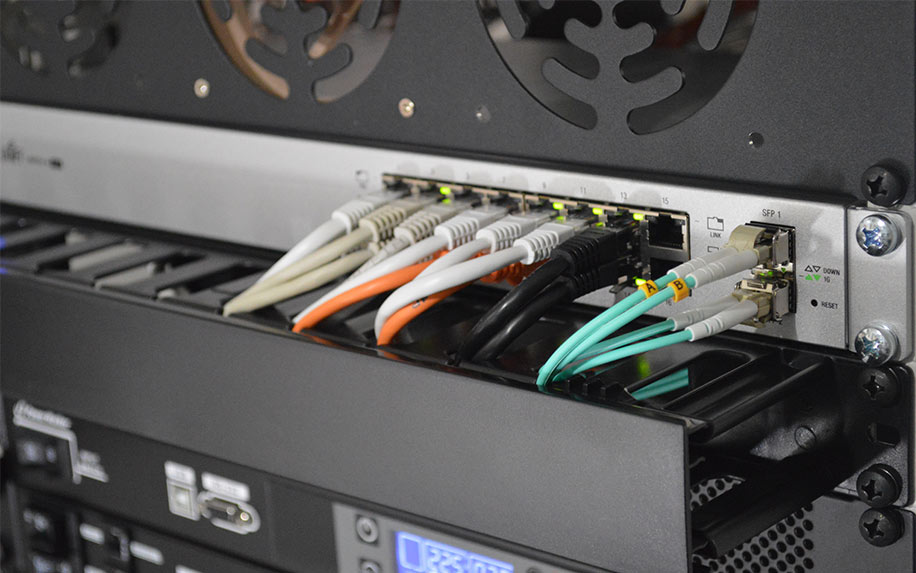Phone systems are one of the most easily overlooked investments for any business. No matter the size of your organisation, your phone system is a vital tool for communicating with your customers and coworkers.
Today, we’ll look at how to implement business VoIP to optimise this process.
These days businesses rely more and more on technology like email or instant messaging to communicate. However, this is not always appropriate. Sometimes, there is simply no substitute for a telephone conversation.
Business VoIP makes this secure and practical on an enterprise-level scale.
What is Business VoIP
VoIP stands for voice over internet protocol. In other words, it’s a system which uses the internet to route phone calls. As the name suggests, business VoIP is when this technology is specifically deployed for business purposes.
This works by converting audio signals into digital data. This data can then be transmitted all around the world, with minimal latency or loss of quality. Modern VoIP systems also offer features for improving your customer experience, for instance, call-data collection.
Of course, this is only a very broad overview. For a better insight, let’s take a look at how business VoIP systems are designed.
PBX Systems
A business VoIP system with a single user only requires a phone and a steady internet connection. For more users, it’s generally best to use what’s known as a private branch exchange (PBX).
This can be thought of as an internal telephone network.
Essentially, this is made up of a number of phones, computers, and other devices, all connected to a specialist server. Users can then make internal calls over the local network, as well as external calls through a VoIP provider.
Users are also able to connect to the PBX server remotely using a proxy, as well as transfer calls, set up conferences or forward calls within the network.
That’s the theory of how a PBX based business VoIP system works. However, most business owners are far more concerned with the tangible benefits of their phone system than they are about how it actually works.
With that in mind, here’s how a business VoIP system can benefit organisations in measurable terms.
Advantages of PBX Business VoIP Systems
When considering any investment, businesses are looking for two key things. These are reduced costs or increased revenues. In other words, when it comes to selecting a new phone system, the bottom line is profitability.
Here are some of the tangible business benefits of investing in an online phone system.
Reduced Costs
Traditional multi-line phone systems are expensive. This is before you even factor in the costs of your business’s other communication tools, like employees’ mobiles, or enterprise-level video chat software.
Additionally, business VoIP systems can be run over your existing internet connection, which reduces the need for investment when switching to a new phone system. Additionally, your network may already meet the requirements for a professional VoIP system.
If this is the case, all that is necessary to implement an IP-based PBX system is the hardware, including phones and a PBX server, as well as VoIP client.
Improved Mobility
As we mentioned before, it’s possible for users to access a PBX server remotely using a proxy client. In the era of distributed workforces, this is absolutely vital. Since the beginning of the COVID crisis, more people than ever have begun working from home.
However, this does not mean that the needs of your customers have changed.
PBX systems make it possible for your staff to communicate with your customers, no matter where they are in the world. In some instances, this can create massive cost reductions, by eliminating the need for contact centres.
Modern systems can achieve this with no loss of functionality. Specifically, users can access their own personal phone extensions anywhere in the world, meaning that they are fully contactable, no matter where they are or what device they log on from.

Increased Productivity
PBX systems can also increase revenues by boosting productivity. Without a private business VoIP system, setting up conference calls can be a convoluted and difficult process, especially when you rely on consumer-grade platforms.
By contrast unified communications features on modern business VoIP systems mean that creating a conference call only takes a few seconds.
This is especially important in the age of remote working, as it gives your colleagues and employees the opportunity to get in some face to face contact while working remotely.
Multi-Platform Support
Additionally, PBX systems offer a great deal of flexibility in terms of the hardware and VoIP platforms you can use. Specifically, you can use your existing SIP or traditional PSTN phones and lines.
You can also use the VoIP client of your choice. This is crucial for businesses who deal with clients or other stakeholders who may prefer different clients for making calls, as it ensures compatibility with your internal phone system.
Now that you understand what a business VoIP system can offer, let’s take a look at some of the key networking requirements you’ll need.
Networking Requirements for Business VoIP
Of course, if you’re going to depend on your local network for hosting all of your communications, it’s important to ensure that this is reliable and stable. Your network will also need to meet certain requirements for business VoIP to work properly.
Let’s take a look at some of the specific requirements.
High Bandwidth
The more users your PBX has, the more bandwidth you’ll need. In a PBX network, bandwidth is essentially a metric which determines the number of people who can make calls at one time, without suffering from a loss of quality.
Modern VoIP systems use highly effective audio compression codecs, for efficient data transfer. The general rule of thumb is that each user will need at least 100kb in order to make concurrent calls.

Low Latency
Latency is the delay between a user speaking into their phone, and the signal reaching the internet. Obviously, the lower this is, the better. An overly high latency will lead to annoying communication difficulties.
Generally, it’s recommended that the latency in a PBX system should be around 50ms at most. This prevents unnatural pauses during a call, which may make it difficult for employees to do their jobs properly.
Wired Connections
Where possible, business VoIP systems should make use of wired connections, rather than relying on WiFi. This is the best way to ensure that the ideal bandwidth and latency can be afforded to individual users.
Wired connections are also generally faster and more stable, as well as providing better security within the network. This is particularly important for organisations which regularly handle sensitive information on their internal calls.
Data Prioritisation
Data prioritisation allows your server to allocate more bandwidth to the most important tasks. This is crucial when implementing a business VoIP system, as it prevents quality being lost when high-traffic activities, like software updates, are taking place elsewhere on the network.
This can be configured using the Quality of Service (QoS) settings on your router. These allow your network administrator to decide which activities should be prioritised at times of high-traffic.
Procuring Business VoIP
Business VoIP is a sound investment for businesses of all sizes. Not only do these systems offer improved functionality and performance over traditional phone lines, but they also frequently work out more cost-effective.
Sonet can advise your business on the best VoIP solutions on the market today, as well as the networking requirements you’ll need to implement these. Get in touch today to discuss your specific needs.





